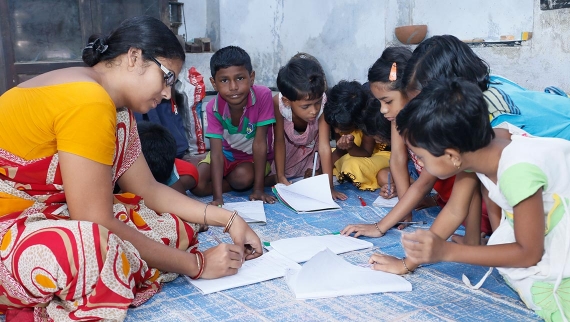How Is Rural Education in India Undergoing Transformations for Better?
Digital and technology-based learning and a better learning environment, as well as low dropouts, suggest that rural education in India is transforming thanks to the efforts of NGO staff.
Social sciences keenly focus on the dynamics of the economic transformation processes in the course of the road to development. An economy's transformation is structural that leads to a plethora of factors fueling the change. In these transformations, the labour markets are diligently dependent on industry location, skills and occupation choices. On the other hand, in the structurally imperfect labour market, like in India, education drives the social process of development. Nevertheless, transformations have no end games, rather it contains a cyclical process of change evolving over time.

The literacy levels of the workforce in the rural areas are gradually being uplifted from their dire state. With the aid and assistance of NGO staff, the education system in rural India is shifting to technology-based learning. Rural students take an active interest in digital learning.
So, the Union Budget 2022 has focused on creating India as a knowledge society and is on its way to fulfilling its vision of the National Education Policy 2022. With the outlay increasing to about 11%, it has a lot to say about the government and Ngos' intent on transforming education.
In effect, while formulating to transform and better rural education in India, the NGO staff are working on meeting the challenges to bridge the rural and urban divide while focusing on neutrality. However, the ground–the level situation is entirely contrary to the envisioned policy in the e-learning focus. Digital education is able to address the delivery issues, but cannot be the alternative to in-person learning. Dismal education infrastructure in rural India requires a complete overhaul.
NGOs As the Prime Agents of Rural Education Transformation in India
The NGO management committee follows a decentralized approach, whereby they encourage local participation in attending classes. Through the system approach, the NGO executives can plan on curriculum design, teachers recruitment, resource implementations and systems for checking the challenges likely to emerge.
So, to improve the education and life of the rural communities in India, they formulate programs for addressing the pressing needs in the education spheres of the rural communities. They ensure their grassroots programs and development interventions have reached the masses for achieving sustainable rural education development. This is how they empower the local individuals and communities to escalate and enhance their own growth.
Another focus area for the NGO staff is transforming the learning centre for children and adults. Therefore, they adopt suitable measures for everyone to have access to safe drinking water, a learning-conducive environment, and better sanitation facilities. Even they take better measures for spreading life skills and digital awareness training.
To increase enrollment and reduce the dropout counts, the NGO staffs encourage the teachers, parents and children. With their capacities, they initiate support and training to improve sustainability functioning.
Transformation in rural education is not only limited to transforming from under-the-tree classes to specific classes. Along with the different subjects, the NGO staff are even encouraging the students to enroll in digital education along with vocational courses to speed up their skills and learning abilities.
Advertise on APSense
This advertising space is available.
Post Your Ad Here
Post Your Ad Here
Comments